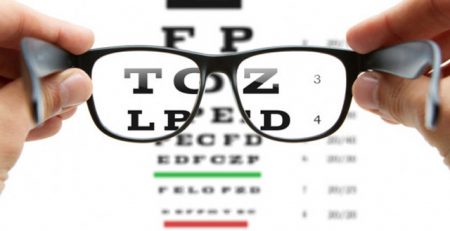About Optician
WHAT IS AN OPTICIAN ?
An optician is the first person people will encounter when seeking out vision care. Opticians are directly involved in customer service and most work in vision care stores. Meanwhile, there are other opticians who work for optometrists that practice in more of a medical setting. However, opticians frequently spend more time with customers than anyone else during the vision care experience. But the role of an optometrist is not only limited to customer service.
Optometrists have technical knowledge that enables them to dispense eyewear to customers. Opticians take measurements and help customers select the eyewear that suits them best. These measurements apply to the thickness of the cornea and other parts of the eye. Opticians are also able to interpret prescriptions that have been issued by optometrists and ophthalmologists. This allows them to create orders that are to be carried out by lab techs. Opticians also have the knowledge to detect some problems with the eye, although they do not provide any kind of patient care.
Opticians play a variety of different roles and are often the ones who keep a vision care center running smoothly. This is accomplished by keeping proper track of prescriptions, appointments and even inventory. Customers with broken frames can also turn to opticians to provide the necessary repairs. And before customers leave a vision care center, opticians can provide insight on how to care for their eyewear.
ROLES OF OPTICIAN :
Individuals who choose a career as Opticians, after receiving prescriptions from optometrists or ophthalmologists, assists clients with suitable frames or contact lenses. Often recognised as a dispensing optician, the optician recommends clients on the eyeglass designs and functionalities to best serve their purposes. Go through the entire article to know how to become an optician technician.
1. Test Analysis:
Opticians perform vision tests and analyze the results. Routine eye tests are critical because attempting to correct sight will enhance the standard of everyday functioning. These should accurately identify certain disorders in the eye like vision problems, cataracts and age-related macular degeneration that could result in a loss of vision. Though they do not prescribe any medicine or provide surgery, they analyse the eyesight before providing the glasses.
2. Prescriptions :
The optician’s principal goal is to help consumers discover the eyeglasses or lenses which seem to be perfectly fit for them. This begins by making sure that the prescriptions of clients can be used appropriately to discover eyeglasses which will function them possibly the best, which provide each patient with the best eyesight. Ophthalmologists and optometrists prescribe medication and eyesight numbers that are followed by opticians when selecting eye-wear or lenses for patients.
3. Diagnosis :
Early diagnosis is crucial in the treatment of acute and chronic eye disease. If we could somehow identify the condition earlier than usual, we can actually reduce vision loss during an eye exam, and recommend options for diagnoses and prevention. Optician adjusts the prescribed eyeglasses and contact lenses and refills them. Opticians can also answer general questions concerning eye care, but they can not examine, treat eye diseases.
4. Assisting customers :
For most people who wear eyeglasses hold an obvious factor of fashion, and opticians help customers select through the catalogue of fashions and designs to find the spectacles they believe looks the best on them. Assisting customers to choose the frame type and shape is one of the primary duties of the opticians. Likewise, opticians help clients discover a style of eyeglasses that sits comfortably on their faces.
5. Facial measurements :
If the slightest bit of the unit of measure goes down, this could lead to the unexpected prism and end up leaving the patient thinking they did not have good refraction and also that the employees do not really understand what they are doing. This normally takes a measurement of the facial features of a client. All aesthetics and comfort are related to each individual’s preferences. Opticians need to be able to recognise the right fits for each customer’s preferences and have to be careful while assisting them through the method.
6. Customer service :
Opticians work in a position that is decidedly based on customer service. In addition to assisting clients with their prescription and style needs, opticians also perform certain customer support activities. For example, after they have been manufactured and shipped to the consumers, they change the eyeglasses to improve the fit. Opticians as well as manage tasks assigned typically for retail, including monitoring and assembling stock and finalizing sales transactions.
TYPES OF OPTICIAN :
Orthoptist:
An orthoptist is a licensed integrated healthcare specialist who works to diagnose and treat visual system conditions with a focus on binocular vision and eye movement issues under the guidance of an ophthalmologist. Orthoptists usually work in the field of pediatric ophthalmology. The objective of an orthoptist is on assessing and non-surgical care of vision defects, eye movements and eye coordination in adults and children. An orthoptist works in the evaluation of the visual function and eye neuromuscular abnormalities.
Ophthalmologist:
We all are very curious about who is an ophthalmologist? Here we have discussed this. An ophthalmologist is a medical or osteopathic doctor who specializes in eye care and eye disease prevention, medical and surgical treatment. An ophthalmologist recognizes and manages eye diseases and abnormalities associated with refractive, medical, and clinical problems. Ophthalmologists are allowed to operate medicine and surgery by state regulatory boards and also generate regular eye care.
Optometrist:
An optometrist is a medical care provider who focuses on eye function and conditions, eye disorder diagnosis, and other types of eye infection management. An optometrist performs eye tests, prescribing replacement eye lenses and glasses, diagnosing and treating eye conditions and disorders. Optometrists investigate, detect and manage vision information, eye and related disease, injuries and abnormalities and analyze specific systemic influences that cause the eye. Optometrist salary will be Rs forty to fifty thousand on average.
Low Vision Specialist:
Many optometrists and other such ophthalmologists have additional credentials or expertise in low vision testing, care and management, and are trained to perform low vision eye tests and prescribe various optical low vision systems. Low-vision professionals are certified optometry doctors who are trained in analysing and handling partially sighted physicians.
HOW TO BECOME AN OPTICIAN ?
Path 1 – Clear 10+2
Students are required to successfully complete the 10 + 2 by securing minimum 50 per cent marks from any acknowledged Indian board in the science stream of physics, biology, and mathematics as compulsory subjects. To get a better understanding of the course, they will need to study these subjects thoroughly.
Path 2 – Entrance Examnation
Admissions tests are carried out by several educational institutions and universities. The admissions are acquired mostly on the basis of the qualified candidates’ results in the entrance test. Numerous institutions as well offer admissions focused on a passing mark of 10 + 2. The qualifying criteria are unique in terms of marks and enrolment procedures, from institution to institution.
Popular entrance examinations
|
EYECET |
All India Institute of Medical Sciences Optometry Test |
| Post Graduate Institute of Medical Education and Research Entrance Exam |
Path 3- Bachelor
Individuals would need at least a bachelor’s degree in opticianry to pursue this profession as an entry-level optician. A bachelor’s degree was then offered to students because they need to work through short undergraduate learning courses to develop the skills needed for the job. If 10 + 2 students complete the bachelor’s degree course successfully, they will be eligible to register. The popular baccalaureate degree programmes are a path to how to become an optician:
Popular bachelor’s degree optician courses
| Bachelor of Science (B.Sc.) |
Bachelor’s degree in Opticianry |
Path 4- Post bachelor
After completing a bachelor’s program, students have several opportunities to enhance their future career. We described the two significant choices underneath to make it even easier to choose the most respectable career, with fewer difficulties.
Option 1: Having a graduate degree may also help you gain knowledge that can be applied to a large variety of optician-related employment opportunities. Once a bachelor’s degree is completed, individual people in a relevant area can easily elect for a postgraduate programme.
Option 2: After graduating from the bachelor’s degree programme, students can start working in a business role. And instead after having gained several years of experience, they will qualify for a postgraduate programme.
Popular master’s degree and doctorate optician courses
OD – Doctor of Optometry
SKILLS OR QUALITIES REQUIRED TO BE AN OPTICIAN ?
There are several requirements to become an Optician. If we want the answer to the question of how to become an optician then we can definitely say that they must possess several skills to be an optician. We have provided below major Optician skills that you may acquire during the architect training period.
Learning skills: The learning process requires understanding the value of new insights, which is an essential strength for staff working in this field to solve challenges and decision-making, whether existing and potential. Active learning and listening abilities essentially work in sequence. Active learning can increase the chance for professionals to recognize technological change and market demand.
Supervisory skill: Supervision abilities prevent future accidents as well as other workplace blunders that could result in serious injury. Supervision allows team members to work with much less pressure to complete the task and builds confidence. Monitor and control the performance of oneself, other individuals, or organizations to make major changes or deal with it accordingly. Opticians need to have these skills to supervise the juniors or the other members of the shop.
Problem Solving ability: Individual and corporate structures are full of details, decisions, conversations and methodologies that have already been destroyed or simply incapable of working the way they are required to function. Problem-solving gives us a technique for recognizing and providing solutions to such objects. Identify complex circumstances and evaluate relevant knowledge so that approaches are established and analyzed and solutions implemented. They need to be a problem-solving ability when they work with several clients and to suit their needs.
Critical thinking: In the work environment, critical thinking skills need to be developed. Critical thinking is necessary as it implies that you should have the best solution to a situation. It may be measured as another main skill of this profession to define the strengths and disadvantages of possible alternatives, surveys or responses to difficulties utilizing logic and common sense. Critical thinking is important as it allows organizations and individuals to analyze and improve issues, and also to recognize possible approaches that are not immediately clear first.
Interpersonal management: Interpersonal skills are essential regardless of the business, as this skill helps employees to create and maintain strong working relationships with each other and with their stakeholders, helping to increase the performance of the organizations and the company. Individuals who choose a career as Opticians need to be able to help their customers feel comfortable because they spend a lot of their time selecting their eyeglasses.




